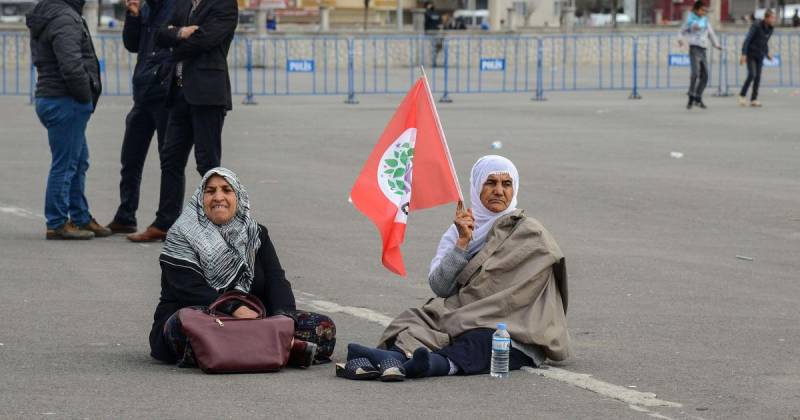Big changes often arrive quietly.
On a lovely September day in 2016, the second day of Eid ul-Adha, the Feast of Sacrifice, we woke up to learn that Turkey’s government had dismissed the elected Kurdish mayors in two cities and 25 districts across the country’s southeast and replaced them with administrators.
I will never forget how the state administrators stormed into my neighbourhood of Sur, the ancient central district of Diyarbakır, the biggest city in Turkey’s mainly Kurdish southeast.
They entered with tanks, armoured vehicles, soldiers and police. First, police barriers were erected around municipality buildings. Then a huge Turkish flag was draped down the facade of the town hall. Civil society leaders, activists and municipality workers gathered in front of the municipality building to make a press statement. But the police did not allow it and made arrests. In the midst of the maelstrom, the voice of a young man echoed in my ears. “We are being occupied,” he said.
That was just the beginning. A month later, in October 2016, the co-mayors of Diyarbakır municipality, Gültan Kışanak and Fırat Anlı, were detained and a state administrator appointed in their place. State administrators were ultimately appointed in 95 of 102 mainly Kurdish municipalities, replacing elected officials.
Town halls across the Kurdish region turned into police stations surrounded by armoured vehicles and heavily armed officers. It was as if we had been conquered and colonised.
The first order of business for the administrators was to close all the municipalities’ departments for women’s affairs. Women’s centres across the region, many of which had taken years to establish, were also closed, including the Dikasum Women’s Centre in Diyarbakır, the Buka Barane Women’s Workshop in Erciş, the Sitiya Zin Women’s Consultancy Centre in Cizre, the Meya Women’s Centre in Silvan, the Çiçek Women’s Centre in Dargeçit, and the Peljin Women’s Centre in Derik.
Some 43 women’s centres and two women’s shelters were closed across the southeast. These centres empowered local women by increasing rights awareness and providing consultancy services and workshops to produce food and handicrafts. The administrators also fired women bus drivers and shut down telephone hotlines women used to report domestic violence.
State-appointed administrators also sought to erase everything connected to Kurdish culture. Kurdish music schools, art centres, Kurdish language centres, Kurdish language children’s crèches and Kurdish theatres were all shut down. Twenty-one cultural centres were closed in the Kurdish region. The Kurdish names of our cities, like Amed, the Kurdish name of Diyarbakır, were removed from public billboards.
Kurdish names were removed from public parks, streets and every corner of our cities. Multi-lingual street signs in Turkish, Kurdish and Armenian were removed and replaced with Turkish-only signs. Everything became one culture, one nation and one flag. Administrators also erased everything about Kurdish history. Monuments erected to commemorate dead Kurdish politicians, writers, intellectuals and Kurdish children shot by security forces were removed. The appointees sought to wipe out the Kurdish heritage of these lands.
The administrators were not only appointed to control our municipalities, but also our lives. We lost our women’s centres, cultural centres, monuments, Kurdish festivals, Kurdish symbols, children’s crèches and many things that made our lives valuable.
The barriers that came with the war and administrators surrounded not only our cities, buildings and parks, but also our minds. In effect, Kurdishness was forbidden.
In Turkey’s March 31 local elections, candidates for the pro-Kurdish opposition Peoples’ Democratic Party (HDP) won most of the municipalities in the region. In the coming days, new Kurdish mayors will begin work and the state administrators will leave with their barriers, flags and armoured cars.
Like most Kurdish people, I have not entered any municipality building in the last two-and-a-half years. I have avoided walking near them, as I did not want to see my municipality behind those police barriers.
Today I noticed that the police barriers in front of the town hall had been taken down. I tried to remember four years ago, to consider all that has been lost since then, how the conflict and the administrators had decimated our cities and our lives.
I failed. I can no longer remember what life was like before the war and the administrators. Now I cannot help but think we will never get back what was taken from us.
* The opinions expressed in this column are those of the author and do not necessarily reflect those of Ahval.
